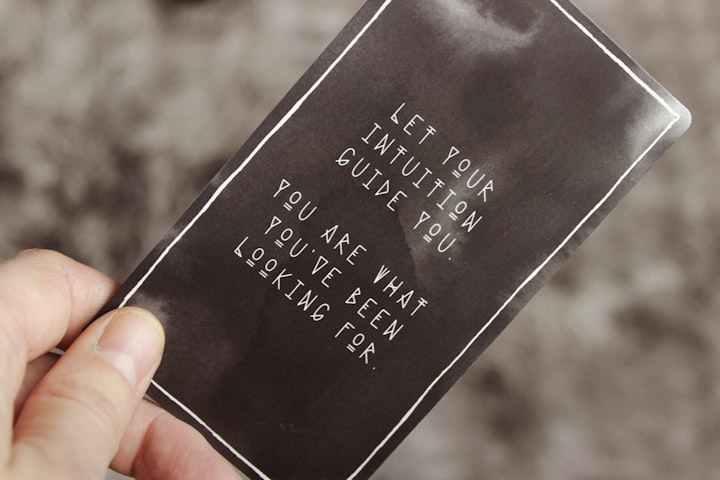Do You Take Pride In Being A multitasker? Your Brain Is Paying The Price
Short-term memory fatigue and creativity suffer in people who multitask

I used to deride myself that I am not able to multitask. I can only do one thing at a time. I need attention for even the simplest task, as simple as reading a newspaper, listening to the news or even eating. I switch off completely just to savour my favourite classical music on a radio or playlist. Sometimes I get upset with myself. I know people who have music at the background while working, sort of ''music while you work''. This is not for me, I can either listen fully to the music or get distracted by it. I am unable to do the two.
I take this as my lot and thought I should use the early part of the new year to try and help myself improve on this. l was gobsmacked when I came across an interesting study by Standford University Study on Multitasking, and it is not what I was expecting. I need to bring out for further awareness because a lot of us believe it is a skill to be able to multitask. Sure we all fall into this belief that we are lagging behind by not being able to joggle tasks and events together.
What Is Multitasking?
Multitasking is the concurrent ability to tackle more than one task at a time. We are all craving for time, wanting to do everything within a short space of time, and believe that we can joggle tasks together to save time. Again we are surrounded by our communication targets, we respond when they need our attention, and we believe we are working. But are we really?
''You Can't Multitask, So Stop Trying.'' Paul Atchley
Paul who wrote in Harvard Business Review, (HBR), said multitaskers actually miss out on the important aspect of the job, making them less effective on the important task.
''Based on over a half-century of cognitive science and more recent studies on multitasking, we know that multitaskers do less and miss information. It takes time (an average of 15 minutes) to re-orient to a primary task after a distraction such as an email. Efficiency can drop by as much as 40%. Long-term memory suffers and creativity - a skill associated with keeping in mind multiple, less common, associations - is reduced.'' Paul on HBR
The study said we want to be seen as hard-working, and trying to gain others' confidence while we build up our own. But it is no good for our brain. He advised us to do something about it.
Three Forms Of Multitasking
1.Doing two things concurrently - is about the most common form of multitasking. Imagine you on a phone call with a customer while another customer is right in front of you demanding attention. This type of multitasking is common with communication tools, like email, telephones. The fact is that as the brain tries to cope, you eventually abandon one task, or make a mistake in what you are doing as well as less productivity. Other problems we might encounter are:
- It inhibits creative thinking and therefore prevents you getting into the flow, again less productive.
- Impacts on short-term memory, and leads to increased anxiety.
2. Context Switching - This is switching between tasks, without completing both tasks. The problem here is that our brain takes time to process the bouncing to and fro tasks. It takes its toll on the brain.
"The ability to think about what is not happening is a cognitive achievement that comes at an emotional cost." Daniel Gilbert & Matthew Killingsworth (Harvard Psychologists)
3.Attention Residue - This is doing multiple different tasks in quick succession. This has the ability to keep thinking of what you just left, and not really concentrating on what you are doing currently. The issue here is that doing one thing, concentrating on it and finishing it is more productive.
Help We Can Draw From
We have to accept that today's technological devices mean there are more distractions to engage us. It will depend on us to choose which one we want to attend at a time. Stick to complete the task before moving on to the next task, which we also give our full attention to. Our brain takes about eighteen minutes to process task switching.
"When they're in situations where there are multiple sources of information coming from the external world or emerging out of memory, they're not able to filter out what's not relevant to their current goal." Standford University Researcher, Clifford Nass
For greater attention and focus, literarily shut out all other distraction. By today's standard, we might need to switch off our phones, and other communication devices to pay close attention to the task at hand. If you are working from home, let family members, especially the children know that you need some time to yourself.
We need to be able to disseminate information. Prioritise to attend to each as they become essential. You are managing your workload as well as your time here, and it is important to know that multitasking is a myth.
The Takeaways
- If we understand the cognitive function when we multitask, we will make an effort to prioritise. This is because the mind and the brain are not designed for multifunctioning. If we do, the mental overload is a catastrophe (by way of a mental block). The example where multitasking and switching can be a catastrophe is using the phone while driving.
''Fill your bowl to the brim and it will spill. Keep sharpening your knife and it will blunt.'' Mao Te Ching
- There is nothing like multitasking. In reality, you are doing less and having a mental switching overload and fatigue.
- Doing one thing at a time is more creative, and gives you more focus, therefore less stressful, and most importantly, your brain loves you for it.
- Help yourself by ensuring you work under a conducive and comfortable atmosphere with less distraction. This will help you to focus on the task on hand as well as more creative.
About the Creator
Lanu Pitan
An avid reader first and foremost. A lover of Nature, as Nature is the language of God. Love is all that the law demands.






Comments
There are no comments for this story
Be the first to respond and start the conversation.